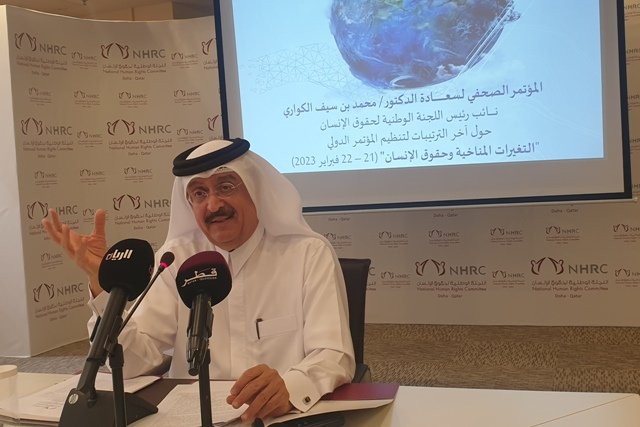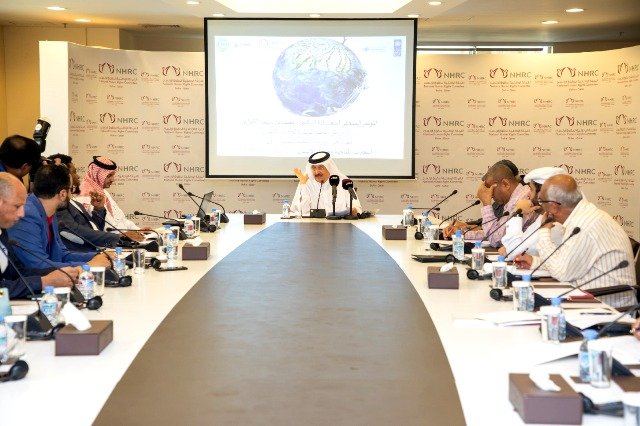Doha, 15 Feb. 2023 (QT)
BY ASHRAF SIDDIQUI
Under the patronage of Prime Minister and Minister of Interior HE Sheikh Khalid bin Khalifa bin Abdulaziz Al Thani, the National Human Rights Committee (NHRC), in cooperation with the Office of the UN High Commissioner for Human Rights, UN Development Program, League of Arab States and the Global Alliance of National Human Rights Institutions (GANHRI), will hold a conference on climate change and human rights from February 21 to 22.
Speaking at a press conference to announce the event, NHRC Deputy Chairman Dr Mohamed bin Saif Al Kuwari said more than 300 representatives of countries, international organisations, think tanks, universities, national human rights institutions, civil society organisations and experts will be participating in the two-day conference.
The speakers will include Michel Forst, Larbi Djacta, Mikko Otani, Rafel Yassen Khedr, Auajjar Mohamed, Dr. Elasto Hilarious, Raquel Caballero de Guevara and Max Tunon.
The conference is conveyed to discuss climate change issues from a human rights perspective, and will come up with concrete recommendations for rights-based climate action for the benefit of all.
Kuwari said the conference aims to emphasize the importance of rights-based climate action, highlight good practices relevant to Qatar and other actors and partners, including governments, the UN, Civil society organizations and institution.
He added that recommendations will be made to enhance cooperation to support rights-based climate action all over the world, especially in the Middle East and North Africa region. The established scientific facts confirmed that the climate changes witnessed by the planet are caused by human activity represented by the high percentage of greenhouse gases in the atmosphere,
Kuwari said, pointing out that these gases began to gradually decrease after the Montreal Protocol on Substances that Deplete the Ozone Layer, which came into
force on January 1, 1989.
The NHRC deputy chairman said the ozone hole began to recover and narrow according to international observatories, adding that climate changes also caused many natural disasters, such as droughts, hurricanes, floods, etc, but the most severe and destructive disasters, according to scientists’ estimation is the melting
of ice, which could cause sea level rise by between 40 and 60cm on average by 2050.
He highlighted that these variables could affect global food security through the drying up of wetlands, and thus the decrease in agricultural yields, in addition to the spread of some diseases and epidemics that could be caused by a rise in temperature.



Comments
Comments are closed.